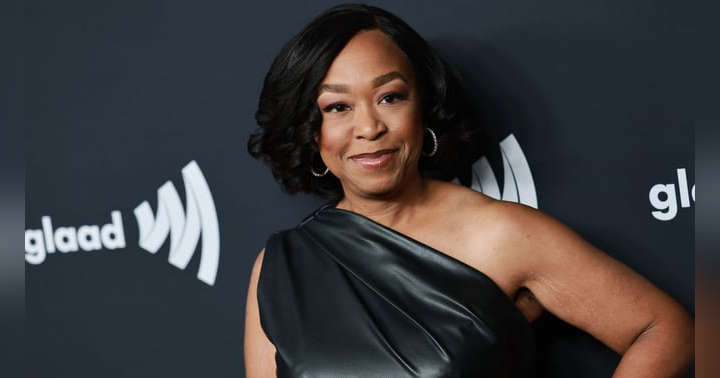Todd Graves Built a Chicken Empire by Breaking Every Rule — And Staying Fanatically Focused

In a raw, revealing interview on the Founders Podcast with David Senra, Todd Graves — founder of Raising Cane’s — shared how he built a multibillion-dollar chicken finger empire by ignoring conventional wisdom, staying relentlessly focused, and never selling out.
Graves’ story is a masterclass in obsessive execution, creative financing, and purpose-driven leadership.
“Nothing ever happens unless someone pursues a vision fanatically,” Graves told Senra.
And he should know. For over 30 years, Graves has defied fast food norms, stuck to a one-item menu, and built a global brand that feeds millions — without ever compromising on quality.
This is the story of how he did it.
Burn the Ships: Betting Everything on a Dream
Graves didn’t grow up with wealth or connections — but he did have work ethic and fire. After being rejected by every bank he pitched, he went to work as a boilermaker in refineries, then risked his life fishing sockeye salmon in the brutal waters of Alaska. All for one reason: to save enough money to open his first Raising Cane’s location.
“Nothing was going to stop me,” he said. “If knitting blankets was the best-paying job, I’d have done that.”
He financed the business on pure grit — credit cards, an SBA loan, angel investors from the refinery, and sheer hustle. When that wasn’t enough, he learned how to do the plumbing and remodeling himself. He literally built the first restaurant with his own hands.
And when it finally opened? The restaurant cleared just $30 in profit the first month. But it worked.
Do One Thing. Do It Better Than Anyone Else.
While the fast food world chased menu diversity and “veto vote” prevention strategies, Graves focused on the opposite: radical simplicity.
No salads. No burgers. No sideshows.
Just chicken fingers — done flawlessly.
“Some people call it a simple menu,” Graves said. “I say it’s focused.”
That focus meant his team could obsess over the tiniest details: the sugar tips on fries, the species of chicken, the 24-hour brine process, and sourcing tea leaves from three different countries. It took two full years to recreate the product’s exact flavor profile before opening in the Middle East.
“Your food has to be craveable,” Graves emphasized. “Craveable food, prepared properly, creates repeat customers. That’s what grows the business.”
Reject the Exit: Building a Company for Purpose, Not Sale
Despite Raising Cane’s meteoric success, Graves has repeatedly refused to sell. Private equity firms have approached. So have strategic buyers. He’s said no every time.
Why? Because to Graves, Cane’s isn’t a financial vehicle — it’s a mission.
“God made me good at chicken fingers so I could help people,” he said.
With over 75,000 crew members and billions in system-wide sales, he sees the business not just as a job creator, but as a community engine. That’s why he refuses to cut quality for profit. He warns that cost-cutting — even in pennies — is the death spiral of craveability.
And when other restaurant chains are selling off, Graves is doubling down. He calls it “crew love” — and his internal motto is never be satisfied. Not out of ego. Out of duty.
“When you lose the founder’s personal attachment — when it’s no longer their baby — bad decisions start happening.”
Katrina. COVID. Still Standing.
Graves’ business philosophy was forged in fire — literally.
In 2005, Hurricane Katrina decimated Louisiana. 21 of Raising Cane’s 28 locations were shut down. No cash coming in. Graves had financed the company aggressively, and he thought he’d blown it.
“I’ll never forget watching the levees break on TV,” he recalled. “I told myself, I will never put this company in that position again.”
His team rallied. Cane’s became the only restaurant open in several markets, feeding first responders and local families. They reopened within 30 days, while others took 90+. Then they did it again during COVID — reconfiguring drive-thrus, creating three-lane systems, and keeping employees safe while delivering food to millions.
Crisis made Graves sharper, more disciplined, and even more obsessed with financial sustainability.
A New Breed of Founder: The Anti-Business Billionaire
Graves belongs to a rare but powerful species of entrepreneur: the anti-business billionaire.
Like James Dyson, Yvon Chouinard, or the late Sam Walton, these founders don’t chase exits. They chase excellence. They are obsessive to the point of mania, allergic to mediocrity, and refuse to let someone else make decisions about their product.
“You don’t delegate. You supplement,” Graves says. “Stay in the details. That’s how you win.”
He’s not trying to maximize shareholder value. He’s trying to build something his grandkids will be proud of.
In his words: “Do it for the right reasons. If you do, the money will come.”
💡 5 Key Takeaways for Wantrepreneurs:
- Fanaticism is fuel. If people think your idea is crazy, you’re probably onto something.
- Relentless focus beats fake variety. Be the best in the world at one thing — not mediocre at ten.
- Build for purpose, not exit. Long-term vision creates lasting value (and wealth).
- Stay in the details. The magic — and the margin — live there.
- Never sell your baby. No one will love your business like you do.





